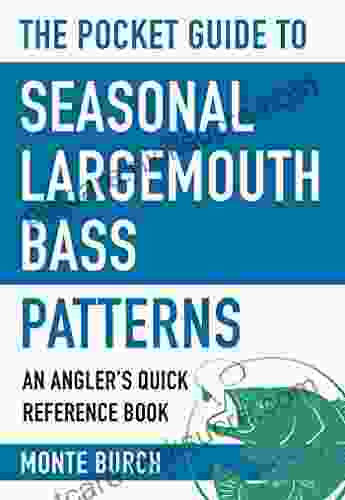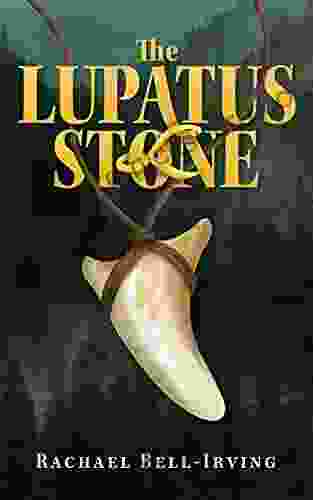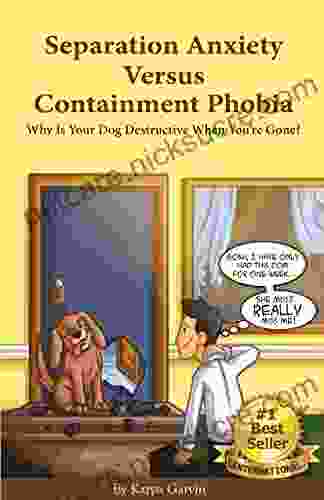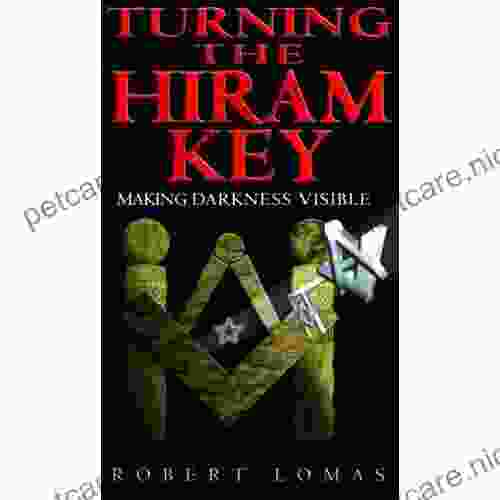Why Is Your Dog Destructive When You're Gone: Uncover the Underlying Causes and Solutions

Dogs are loyal and loving companions, but their destructive behavior can be a frustrating problem for owners. When your dog destroys furniture, shoes, or other belongings while you're gone, it can leave you feeling exasperated and at a loss for solutions. However, understanding the underlying causes of destructive behavior is the first step towards finding effective solutions. In this article, we will explore the various reasons why dogs may engage in destructive behavior when left alone and provide practical tips to help you address this issue.
One of the most common reasons why dogs become destructive when left alone is boredom. Dogs are social creatures that need physical and mental stimulation to stay happy and healthy. When they are left alone for extended periods without adequate enrichment, they may resort to destructive behavior to alleviate their boredom.
Solution:
4.5 out of 5
| Language | : | English |
| File size | : | 2851 KB |
| Text-to-Speech | : | Enabled |
| Screen Reader | : | Supported |
| Enhanced typesetting | : | Enabled |
| Word Wise | : | Enabled |
| Print length | : | 154 pages |
| Lending | : | Enabled |
- Provide your dog with plenty of toys and interactive puzzles to keep them occupied while you're away.
- Consider hiring a dog walker or enrolling your dog in doggy daycare to provide them with socialization and exercise.
- Teach your dog calm and relaxing activities, such as chewing on appropriate chew toys or listening to calming music.
Separation anxiety is a condition where dogs experience excessive anxiety and stress when they are separated from their owners. This can lead to a range of destructive behaviors, including chewing, digging, and barking. Dogs with separation anxiety may also exhibit other symptoms, such as pacing, whining, or urinating and defecating in inappropriate places.
Solution:
- Gradually increase the amount of time your dog is left alone to help them adjust to being apart from you.
- Provide your dog with a safe and comfortable space where they can retreat when they feel anxious.
- Use calming aids, such as pheromone diffusers, anxiety vests, or Thundershirts, to reduce their stress levels.
- Consider consulting with a professional dog trainer or veterinarian for additional support.
Some dogs lack the ability to self-soothe and calm themselves down. This can lead to destructive behavior when they are left alone because they don't know how to cope with their emotions or boredom.
Solution:
- Teach your dog relaxation techniques, such as the "settle" command or cooperative care training.
- Provide your dog with a calming routine before you leave, such as a gentle massage, brushing their fur, or playing calming music.
- Create a safe and quiet space where your dog can retreat to and feel secure when you're gone.
Dogs that don't get enough physical exercise may become destructive as a way to release their pent-up energy. Exercising your dog regularly helps to tire them out and reduce their boredom, which can minimize destructive behavior.
Solution:
- Make sure your dog gets plenty of exercise every day, even if you have to hire a dog walker or take them to a doggy park.
- Engage your dog in active play sessions, such as fetch, tug-of-war, or agility training.
- Consider activities like swimming or hiking to provide your dog with additional physical and mental stimulation.
In some cases, destructive behavior in dogs may be caused by underlying medical issues. Pain, discomfort, or cognitive decline can all lead to increased anxiety and destructive tendencies.
Solution:
- If you notice any changes in your dog's behavior, appetite, or physical condition, consult with your veterinarian promptly to rule out any underlying medical problems.
- Provide your dog with appropriate pain medication or supplements if necessary.
- Consider cognitive support supplements or activities to help manage cognitive decline in older dogs.
In addition to the main causes mentioned above, there are a number of other factors that may contribute to destructive behavior in dogs when they are left alone. These include:
- Genetics: Some breeds are more prone to destructive behavior than others. For example, terriers are known for their high energy levels and may be more likely to engage in destructive chewing if they are not provided with adequate stimulation.
- Personality: Some dogs are simply more anxious or reactive than others. These dogs may be more susceptible to destructive behavior when left alone.
- Environmental stressors: Changes in the environment, such as moving to a new home or the addition of a new pet, can trigger anxiety and destructive behavior in some dogs.
Destructive behavior in dogs when left alone can be a frustrating problem, but it is important to remember that it is usually caused by underlying factors that can be addressed. By understanding the reasons why your dog may be engaging in destructive behavior and implementing the appropriate solutions, you can help your furry friend overcome this issue and live a happy and healthy life. Remember to be patient and consistent in your approach, and don't hesitate to seek professional help if necessary.
4.5 out of 5
| Language | : | English |
| File size | : | 2851 KB |
| Text-to-Speech | : | Enabled |
| Screen Reader | : | Supported |
| Enhanced typesetting | : | Enabled |
| Word Wise | : | Enabled |
| Print length | : | 154 pages |
| Lending | : | Enabled |
Do you want to contribute by writing guest posts on this blog?
Please contact us and send us a resume of previous articles that you have written.
 Fiction
Fiction Non Fiction
Non Fiction Romance
Romance Mystery
Mystery Thriller
Thriller SciFi
SciFi Fantasy
Fantasy Horror
Horror Biography
Biography Selfhelp
Selfhelp Business
Business History
History Classics
Classics Poetry
Poetry Childrens
Childrens Young Adult
Young Adult Educational
Educational Cooking
Cooking Travel
Travel Lifestyle
Lifestyle Spirituality
Spirituality Health
Health Fitness
Fitness Technology
Technology Science
Science Arts
Arts Crafts
Crafts DIY
DIY Gardening
Gardening Petcare
Petcare Chris J Ellis
Chris J Ellis Lei Wang
Lei Wang Gary M Schultheis
Gary M Schultheis Carola Hein
Carola Hein Judith Warner
Judith Warner Alison Gopnik
Alison Gopnik Lindsey Bliss
Lindsey Bliss Naomi Moriyama
Naomi Moriyama Six Sisters Stuff
Six Sisters Stuff Francis L Macrina
Francis L Macrina Pam Jarvis
Pam Jarvis Joshua James
Joshua James Jack Newfield
Jack Newfield Karyn Garvin
Karyn Garvin Bruce Brown
Bruce Brown Irina Szmelskyj
Irina Szmelskyj Grace Liu
Grace Liu Bill Rodgers
Bill Rodgers Alex Hibbert
Alex Hibbert Peter Heller
Peter Heller Geoff Powter
Geoff Powter Lh Press
Lh Press Raymond Arsenault
Raymond Arsenault Monte Burch
Monte Burch Holly Hook
Holly Hook Aaron T Beck
Aaron T Beck Tyler Lansford
Tyler Lansford Taran Matharu
Taran Matharu Evelyn Raab
Evelyn Raab Bob Chandler
Bob Chandler Stephen C Meyer
Stephen C Meyer Julie K Briggs
Julie K Briggs Kev Reynolds
Kev Reynolds Carol Matsuzaki
Carol Matsuzaki Guy Harrison
Guy Harrison Michael Ross
Michael Ross Steve Garratt
Steve Garratt Edward Marston
Edward Marston Shane Jones
Shane Jones Darril Fosty
Darril Fosty My Daily German
My Daily German Chad Waterbury
Chad Waterbury Charlotte Eliopoulos
Charlotte Eliopoulos Mark Miller
Mark Miller Jareth Tempest
Jareth Tempest Tamonya Sands
Tamonya Sands Elizabeth Heavey
Elizabeth Heavey Estelle Maskame
Estelle Maskame Bradmd
Bradmd Linda L French
Linda L French Elaine Heney
Elaine Heney Frank Wilczek
Frank Wilczek Tim Deroche
Tim Deroche Perre Coleman Magness
Perre Coleman Magness Irene Spencer
Irene Spencer Ray Mcnulty
Ray Mcnulty Suzy Hopkins
Suzy Hopkins Larry Krieger
Larry Krieger Ivana Bajic Hajdukovic
Ivana Bajic Hajdukovic Jody Morse
Jody Morse George Grimm
George Grimm Sanjay Sarma
Sanjay Sarma Desiree Trattles
Desiree Trattles Adam Rutherford Phd
Adam Rutherford Phd Edward A Bell
Edward A Bell Jeremy Bhandari
Jeremy Bhandari Paul Haddad
Paul Haddad 1st Ed 2021 Edition Kindle Edition
1st Ed 2021 Edition Kindle Edition Ashlee Kasten
Ashlee Kasten Paul Freedman
Paul Freedman Will Nett
Will Nett Kristen Thrasher
Kristen Thrasher 15th Edition Kindle Edition
15th Edition Kindle Edition Fern Nichols
Fern Nichols Lisa Marasco
Lisa Marasco Geraint Thomas
Geraint Thomas 1st Ed 2020 Edition Kindle Edition
1st Ed 2020 Edition Kindle Edition Diane H Tracey
Diane H Tracey Elizabeth Becker
Elizabeth Becker Scott Matthews
Scott Matthews Berkshire K Greene
Berkshire K Greene Nicole Zasowski
Nicole Zasowski 1st Ed 2016 Edition Kindle Edition
1st Ed 2016 Edition Kindle Edition Travis Senzaki
Travis Senzaki Robyn Hawkins
Robyn Hawkins Burt L Standish
Burt L Standish Anthony Haynes
Anthony Haynes Ian Stewart
Ian Stewart Ukay J Ekong
Ukay J Ekong Wendy Higgins
Wendy Higgins John Toussaint
John Toussaint Jamie Whyte
Jamie Whyte Wolfgang Jank
Wolfgang Jank Andy Kirkpatrick
Andy Kirkpatrick Jeanne Oliver
Jeanne Oliver Stacey Steinberg
Stacey Steinberg Jean Yves Leloup
Jean Yves Leloup Michael T Mcdermott
Michael T Mcdermott Michael R Canfield
Michael R Canfield Tom Chivers
Tom Chivers Barry Ord Clarke
Barry Ord Clarke Ejike Ifeanyichukwu
Ejike Ifeanyichukwu Pete Magill
Pete Magill Taylor Fontenot
Taylor Fontenot Piotr Naskrecki
Piotr Naskrecki Hannu Rajaniemi
Hannu Rajaniemi Glenda Green
Glenda Green Janice Hudson
Janice Hudson Editions La Plume D Eros
Editions La Plume D Eros Marva Collins
Marva Collins Traci Chee
Traci Chee John Vigor
John Vigor Louise Warneford
Louise Warneford Hesam Nemounehkhah
Hesam Nemounehkhah House Of Talent
House Of Talent Megan Sloan
Megan Sloan Felicity Cloake
Felicity Cloake Larry A Yff
Larry A Yff Jesse M Ehrenfeld
Jesse M Ehrenfeld Ian Sample
Ian Sample Tim Hollister
Tim Hollister John T Cacioppo
John T Cacioppo Andrew Evans
Andrew Evans Leona S Aiken
Leona S Aiken Tim Powers
Tim Powers Christopher Carter
Christopher Carter Gary E Schwartz
Gary E Schwartz Norman Delgado
Norman Delgado Sharon Copeland
Sharon Copeland Sarah Lawton
Sarah Lawton Patricia B Mcconnell
Patricia B Mcconnell Knowledge Tree
Knowledge Tree Russ Moorhouse
Russ Moorhouse Clifford E Trafzer
Clifford E Trafzer S K Gupta
S K Gupta Sarah Thompson
Sarah Thompson D James Benton
D James Benton Spire Study System
Spire Study System Forrest Willett
Forrest Willett Jamie Dorobek
Jamie Dorobek Nick Redfern
Nick Redfern Mark Seidenberg
Mark Seidenberg Nancy Hendrickson
Nancy Hendrickson Joshua G Shifrin
Joshua G Shifrin Stanley Vast
Stanley Vast Ruth Ware
Ruth Ware Richard Hofstadter
Richard Hofstadter Amanda Brooks
Amanda Brooks Jacob Cohen
Jacob Cohen Arden Rose
Arden Rose Liz Thomas
Liz Thomas Sara Saedi
Sara Saedi Craig Clapper
Craig Clapper Gail Buckland
Gail Buckland Mambo Chita Tann
Mambo Chita Tann Otto Toeplitz
Otto Toeplitz Ali Psiuk
Ali Psiuk Morten H Christiansen
Morten H Christiansen Daisaku Ikeda
Daisaku Ikeda Robert Irwin
Robert Irwin Michael Borenstein
Michael Borenstein Cal Peternell
Cal Peternell Lou Nanne
Lou Nanne Robert Oerter
Robert Oerter Shalini Shankar
Shalini Shankar Jamil Zaki
Jamil Zaki Sharon Wilkins
Sharon Wilkins Valerie Nash Chang
Valerie Nash Chang Kim Dwinell
Kim Dwinell Mae Ilami Onyekwum
Mae Ilami Onyekwum Randall M Packard
Randall M Packard Jim Baggott
Jim Baggott Mark Lattanzi
Mark Lattanzi Jeff Benedict
Jeff Benedict Geoff Johns
Geoff Johns Maureen Dempsey
Maureen Dempsey Lynne Tolley
Lynne Tolley Zachary Willey
Zachary Willey Ron Larson
Ron Larson Rana Conway
Rana Conway Julie Angus
Julie Angus Dylan Dethier
Dylan Dethier Helen Garabedian
Helen Garabedian Beryl Beare
Beryl Beare Christa Mackinnon
Christa Mackinnon John S Farnam
John S Farnam Alexandre Paiva
Alexandre Paiva Bud Hasert
Bud Hasert Michele Smith
Michele Smith Janet Godwin
Janet Godwin Robyn Perry Worthington
Robyn Perry Worthington Joseph Mercola
Joseph Mercola Natsuki Takaya
Natsuki Takaya Jacqueline Corricelli
Jacqueline Corricelli Katie Singer
Katie Singer Gary Dierking
Gary Dierking Janet Malcolm
Janet Malcolm Ben Coates
Ben Coates Erin Miller
Erin Miller Phyllis Franklin
Phyllis Franklin David Roberts
David Roberts Kim Mack Rosenberg
Kim Mack Rosenberg Richard E Nisbett
Richard E Nisbett Timothy Dickeson
Timothy Dickeson T M Mikita
T M Mikita James Ragonnet
James Ragonnet Mike Chappell
Mike Chappell Matthew B Crawford
Matthew B Crawford Emily Vikre
Emily Vikre Mayim Bialik
Mayim Bialik Marisa Kanter
Marisa Kanter Intelligent
Intelligent Brian Fagan
Brian Fagan Stephen Bodio
Stephen Bodio Chris Parsons
Chris Parsons Xiufeng Liu
Xiufeng Liu Jon Young
Jon Young Claire Dunn
Claire Dunn Natalia Molina
Natalia Molina Carmen Acevedo Butcher
Carmen Acevedo Butcher Richard Pears
Richard Pears Orji Onyebuchi
Orji Onyebuchi Thomas Lickona
Thomas Lickona Shane Benzie
Shane Benzie Elizabeth Field
Elizabeth Field Robert Lomas
Robert Lomas Daniel L Schacter
Daniel L Schacter Dana Trentini
Dana Trentini Aron Ralston
Aron Ralston Vikas Bhushan
Vikas Bhushan Saroo Brierley
Saroo Brierley Dan Robson
Dan Robson Alan Naldrett
Alan Naldrett Alan Greenfield
Alan Greenfield Derald Wing Sue
Derald Wing Sue Diana Papaioannou
Diana Papaioannou Christian Straube
Christian Straube Michael Archer
Michael Archer Harry Fisch
Harry Fisch Rebekah Dodson
Rebekah Dodson Timothy R Pauketat
Timothy R Pauketat Mark Santino
Mark Santino Eric Sevareid
Eric Sevareid S Elia
S Elia Hafsah Faizal
Hafsah Faizal Karen Kovacs
Karen Kovacs Paul Johnson
Paul Johnson Dierdre Wolownick Honnold
Dierdre Wolownick Honnold Lenora Chu
Lenora Chu Disha Experts
Disha Experts David Barrett
David Barrett Anton Angelov
Anton Angelov David Clark
David Clark R K Agarwal
R K Agarwal Jane Yeadon
Jane Yeadon Philippa Langley
Philippa Langley Raichelle Carter
Raichelle Carter Robert Lanza
Robert Lanza Julia Rutland
Julia Rutland Maia Motley
Maia Motley Paul Gaskell
Paul Gaskell Jay Cassell
Jay Cassell Lavinia Collins
Lavinia Collins Franz Boas
Franz Boas Ann Jackson
Ann Jackson Nathan D Lang Raad
Nathan D Lang Raad Emily Chetkowski
Emily Chetkowski Kyler Shumway
Kyler Shumway Webb Chiles
Webb Chiles Livy
Livy Daniel Todd Gilbert
Daniel Todd Gilbert Jonathan Vaughters
Jonathan Vaughters Laura Prepon
Laura Prepon Robyn Ryle
Robyn Ryle Kathy Farrokhzad
Kathy Farrokhzad Robert Chu
Robert Chu Bruce Chatwin
Bruce Chatwin Kaoru Sinozaki
Kaoru Sinozaki Wabun Wind
Wabun Wind Ric Conrad
Ric Conrad Daniel Scott
Daniel Scott M Susan Lindee
M Susan Lindee Anthony Burgess
Anthony Burgess Asti Hustvedt
Asti Hustvedt Brian Meier
Brian Meier Karl Rehn
Karl Rehn Alison Pray
Alison Pray Mindfulness Hypnosis Academy
Mindfulness Hypnosis Academy Janice K Ledford
Janice K Ledford Mara Rutherford
Mara Rutherford Jason Sumner
Jason Sumner Harvey Penick
Harvey Penick Rachael Bell Irving
Rachael Bell Irving Kajal Gupta
Kajal Gupta Nick Morrison
Nick Morrison Jill Heinerth
Jill Heinerth Brent E Turvey
Brent E Turvey Joachim Rossberg
Joachim Rossberg Isa Herrera
Isa Herrera Pat Manley
Pat Manley Matthew Harffy
Matthew Harffy Michelle Damiani
Michelle Damiani Didier Reiss
Didier Reiss Broccoli Lion
Broccoli Lion Deborah T Goldberg
Deborah T Goldberg Pam Vredevelt
Pam Vredevelt Denis Dwyer
Denis Dwyer Erfun Geula
Erfun Geula Peter Hessler
Peter Hessler Derek Rowntree
Derek Rowntree Nageshwar Sah
Nageshwar Sah Alexandra Witze
Alexandra Witze Karina Manta
Karina Manta Charles Fleming
Charles Fleming Nancy B Rapoport
Nancy B Rapoport Alexandra Kenin
Alexandra Kenin Mike Barrett
Mike Barrett Samuel Owedyk
Samuel Owedyk Joshua Darwin
Joshua Darwin Cathy Hester Seckman
Cathy Hester Seckman Joanne Calderwood
Joanne Calderwood Laura Luther
Laura Luther Lech A Grzelak
Lech A Grzelak Fletcher Dunn
Fletcher Dunn Ben Rothenberg
Ben Rothenberg The Lodge Company
The Lodge Company Ronald York
Ronald York Christine E Sleeter
Christine E Sleeter Roger Frampton
Roger Frampton Michael Clarke
Michael Clarke Jacob Stegenga
Jacob Stegenga Nicholas J Saunders
Nicholas J Saunders Bilingual Edition Kindle Edition
Bilingual Edition Kindle Edition Graham Priest
Graham Priest Day Schildkret
Day Schildkret Brent Warner
Brent Warner Raven Morgaine
Raven Morgaine Bryn Huntpalmer
Bryn Huntpalmer Sarah A Clark
Sarah A Clark Adam Cesare
Adam Cesare Alice Roberts
Alice Roberts Neil Sagebiel
Neil Sagebiel Eryk Lewinson
Eryk Lewinson James Adams
James Adams Anne Polli
Anne Polli Brad Myers
Brad Myers 1st Ed 2018 Edition Kindle Edition
1st Ed 2018 Edition Kindle Edition Diane Vaughan
Diane Vaughan 1st Edition Kindle Edition
1st Edition Kindle Edition Andrea Sfiligoi
Andrea Sfiligoi Christopher Hook
Christopher Hook Kara Goucher
Kara Goucher Belinia Xenrale
Belinia Xenrale Deborah Spungen
Deborah Spungen Teddy Atlas
Teddy Atlas Felicia Pizzonia
Felicia Pizzonia Mike Lanza
Mike Lanza Sophie Kinsella
Sophie Kinsella Guillermo Gonzalez
Guillermo Gonzalez Keshia A Case
Keshia A Case Samantha Boardman
Samantha Boardman Caroline Fidanza
Caroline Fidanza Rosemary Ellen Guiley
Rosemary Ellen Guiley Ellie Marney
Ellie Marney Arny Alberts
Arny Alberts Kathleen Buckstaff
Kathleen Buckstaff William E Glassley
William E Glassley Michael Schiavone
Michael Schiavone Jerome Rand
Jerome Rand H Lee Jones
H Lee Jones Robert Clifton Robinson
Robert Clifton Robinson Jonathan Tarbox
Jonathan Tarbox Mike Bender
Mike Bender Lani Forbes
Lani Forbes Nicole Libin Phd
Nicole Libin Phd Alan Agresti
Alan Agresti Dk Publishing
Dk Publishing 1st Ed 2017 Edition Kindle Edition
1st Ed 2017 Edition Kindle Edition Alice Waters
Alice Waters Bob Allcorn
Bob Allcorn Robert Milner
Robert Milner Paul Annacone
Paul Annacone Karen L Cox
Karen L Cox Doug Degrood
Doug Degrood Matthew Dworak
Matthew Dworak Terry Pratchett
Terry Pratchett Lori Bregman
Lori Bregman Adeline Yen Mah
Adeline Yen Mah Philip Coppens
Philip Coppens Rebecca Solnit
Rebecca Solnit David Weber
David Weber Larry Kaniut
Larry Kaniut Bill Douglas
Bill Douglas Jandy Nelson
Jandy Nelson Sandra Uwiringiyimana
Sandra Uwiringiyimana Loudell F Snow
Loudell F Snow Ashley Stanford
Ashley Stanford Kiley Reid
Kiley Reid James M Tabor
James M Tabor Leslie Anthony
Leslie Anthony Leonard Sax
Leonard Sax Chip Ingram
Chip Ingram John L Havlin
John L Havlin Joyce L Vedral
Joyce L Vedral Cathy Raubenheimer
Cathy Raubenheimer Clark A Campbell
Clark A Campbell Daniel H Pink
Daniel H Pink Monica Beyer
Monica Beyer Sara Snow
Sara Snow Jeffrey S Saltz
Jeffrey S Saltz Seth Tucker
Seth Tucker 6th Edition Kindle Edition
6th Edition Kindle Edition Kay Kennedy
Kay Kennedy R J Vickers
R J Vickers J F Tamayo
J F Tamayo Chris Stringer
Chris Stringer Philip Moore
Philip Moore Jeremy Lent
Jeremy Lent Susan Alcorn
Susan Alcorn Modestus Anabaraonye
Modestus Anabaraonye Patricia G Lange
Patricia G Lange Sarah A Reinhard
Sarah A Reinhard Jacob Gardner
Jacob Gardner Florence Nightingale
Florence Nightingale Evy Poumpouras
Evy Poumpouras Susan Ludington Hoe
Susan Ludington Hoe R I Chalmers
R I Chalmers Tillie Cole
Tillie Cole Skylar Kergil
Skylar Kergil Rafael Nadal
Rafael Nadal Botros Rizk
Botros Rizk Teri Tom
Teri Tom Jo Bartlett
Jo Bartlett Ivor Horton
Ivor Horton Lawrence T Friedhoff
Lawrence T Friedhoff Heather A Smith
Heather A Smith Mary Douglas
Mary Douglas Amita Jassi
Amita Jassi David Wolff
David Wolff Launi Meili
Launi Meili Joan Ryan
Joan Ryan Manjit Kumar
Manjit Kumar Steve Crawford
Steve Crawford Rick Barba
Rick Barba Rachel Reed
Rachel Reed Mildred Council
Mildred Council Gerd Gigerenzer
Gerd Gigerenzer Stephen R Lawhead
Stephen R Lawhead Ewan Mcgregor
Ewan Mcgregor James Proctor
James Proctor Peter Burns
Peter Burns Harold Simmons
Harold Simmons Sean Fitz Gerald
Sean Fitz Gerald Lars Anderson
Lars Anderson Egerton Ryerson Young
Egerton Ryerson Young M L Buchman
M L Buchman Hana Ali
Hana Ali Sally A Lipsky
Sally A Lipsky George Mount
George Mount Jacqueline Carey
Jacqueline Carey David I Spivak
David I Spivak Duncan Hamilton
Duncan Hamilton Wendy Sullivan
Wendy Sullivan John Small
John Small Jay Carter
Jay Carter Rollo Tomassi
Rollo Tomassi Elise Hennessy
Elise Hennessy Vaclav Smil
Vaclav Smil Lisa R Cohen
Lisa R Cohen Gerald Beaudry
Gerald Beaudry Ann Olga Koloski Ostrow
Ann Olga Koloski Ostrow David Fine
David Fine David Faulkner
David Faulkner Andrea Olson
Andrea Olson Jean Pierre De Caussade
Jean Pierre De Caussade Dr Mike Grevlos
Dr Mike Grevlos Paul A Laviolette
Paul A Laviolette Amanda Kingloff
Amanda Kingloff Dorthe Berntsen
Dorthe Berntsen Dinah Bucholz
Dinah Bucholz Leonie Mack
Leonie Mack Phil Mickelson
Phil Mickelson Os Guinness
Os Guinness Christian Fader
Christian Fader Gill Stewart
Gill Stewart Yaron Seidman
Yaron Seidman Mark Vee John
Mark Vee John Peter Lightbown
Peter Lightbown David Kahn
David Kahn Helen Batten
Helen Batten Keith Bowden
Keith Bowden Carol Lynn Mckibben
Carol Lynn Mckibben Amanda Claridge
Amanda Claridge Robin Hobb
Robin Hobb Andrew Solomon
Andrew Solomon Tadahiko Mizuno
Tadahiko Mizuno Latham Thomas
Latham Thomas 1st Ed 2019 Edition Kindle Edition
1st Ed 2019 Edition Kindle Edition
Light bulbAdvertise smarter! Our strategic ad space ensures maximum exposure. Reserve your spot today!

 Clarence MitchellMcGraw Hill Education 000 Review Questions for the CPA Exam: An In-Depth...
Clarence MitchellMcGraw Hill Education 000 Review Questions for the CPA Exam: An In-Depth...
 Miguel NelsonJanice VanCleave's Food And Nutrition For Every Kid: A Comprehensive Guide to...
Miguel NelsonJanice VanCleave's Food And Nutrition For Every Kid: A Comprehensive Guide to...
 Colton CarterThe Classic Walker Haute Route: A Trekker's Guide to the Alps' Grand Traverse
Colton CarterThe Classic Walker Haute Route: A Trekker's Guide to the Alps' Grand Traverse Art MitchellFollow ·3.2k
Art MitchellFollow ·3.2k Bryan GrayFollow ·8.8k
Bryan GrayFollow ·8.8k J.D. SalingerFollow ·11.1k
J.D. SalingerFollow ·11.1k Jamal BlairFollow ·14.4k
Jamal BlairFollow ·14.4k William GoldingFollow ·6.4k
William GoldingFollow ·6.4k Ryūnosuke AkutagawaFollow ·18.6k
Ryūnosuke AkutagawaFollow ·18.6k Brady MitchellFollow ·18k
Brady MitchellFollow ·18k Brian WestFollow ·13.1k
Brian WestFollow ·13.1k

 Marcus Bell
Marcus BellThe Essential Guide to Angler Quick Reference: Your...
Embark on an unforgettable...

 Juan Butler
Juan ButlerThe Lupatus Stone: A Wicked Conjuring
The Lupatus Stone is a...

 Alvin Bell
Alvin BellUnveiling the Enchanting Memoirs of Lady Hyegyong: A...
In the annals of Korean...

 DeShawn Powell
DeShawn PowellAMC's Best Day Hikes in the Berkshires: Explore Majestic...
The Berkshires, a...

 Clark Campbell
Clark CampbellRewilding The Urban Soul: Reconnecting with Nature in the...
In the heart of sprawling metropolises, where...

 Cruz Simmons
Cruz SimmonsHow to Find Your Family History on a Genealogy Website: A...
Delving into the...
4.5 out of 5
| Language | : | English |
| File size | : | 2851 KB |
| Text-to-Speech | : | Enabled |
| Screen Reader | : | Supported |
| Enhanced typesetting | : | Enabled |
| Word Wise | : | Enabled |
| Print length | : | 154 pages |
| Lending | : | Enabled |






